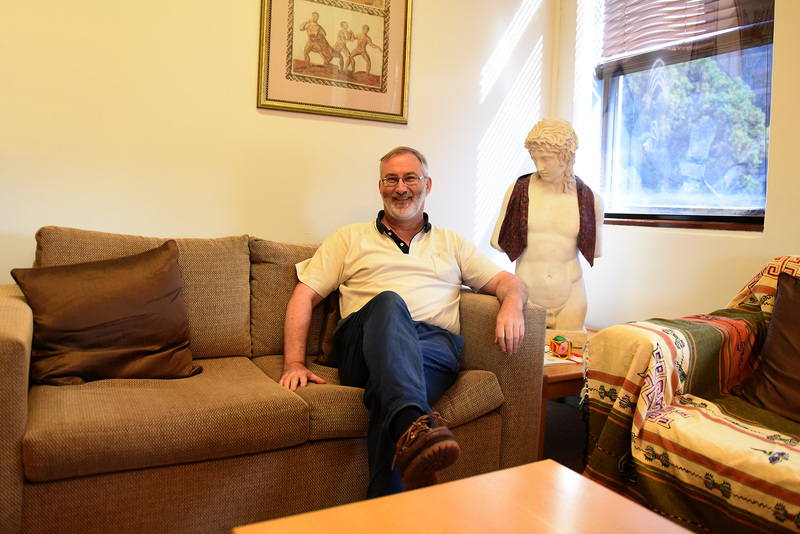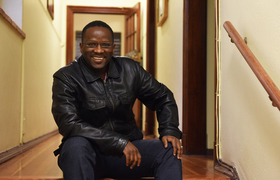UCT Book Award for classics scholar
13 December 2018 | Story Helen Swingler. Photo Robyn Walker. Read time 5 min.
Professor David Wardle’s work Suetonius: Life of Augustus has won the 2018 UCT Book Award, to be presented at today’s graduation ceremony. The book is Wardle’s third volume in Oxford University Press’s prestigious Clarendon Ancient History Series.
Suetonius: Life of Augustus has been described as a “comprehensive, historical, historiographical and literary commentary in English on the biography of Rome’s first emperor, Augustus, written in the second century AD”. Suetonius was probably an African biographer. Wardle began working on the book in December 2002, but it became his main research focus from 2006.
The citation notes: “It is the first scholarly commentary to be accessible to readers without any knowledge of Latin or Greek through its use of English lemmata, while the new translation remains faithful to the original Latin.”
The annual UCT Book Award recognises outstanding works penned by UCT staff and is open to published works in any category: Monographs, textbooks, novels, collections and popular writing are eligible. Members of the UCT community can also nominate works they believe bring credit to the university.
Roman imperial history
Wardle is the former director of the School of Languages and Literatures, and currently Acting Dean of Humanities. He joined UCT as a lecturer in 1990 and was appointed professor in Classics and Ancient History in 2006. His academic specialisation is in the field of Roman imperial history and historiography, which he combines with an interest in ancient Roman religion.
He has written many articles and is the author of three other monographs, also commentaries on key texts from the Classical period: Suetonius’ Life of Caligula, Valerius Maximus: Memorable Deeds and Sayings Book I and Cicero: On Divination Book I.
The citation explained that C Suetonius Tranquillus was a biographer and scholar who rose from relative obscurity in modern-day Algeria to serve at the head of the Roman civil service. He used his knowledge of the job of an emperor to create an evaluative framework which he used for the first biographies of Rome’s emperors.
Augustus, god emperor
Speaking at his inaugural lecture in 2009, Wardle said that according to Suetonius there were many signs and omens that Augustus was destined for not just great things, but also divinity.
“The ancient manifestations of ‘ruler cult’, reflected in more recent times by Hitler in Germany, Stalin in Russia and the Kims in North Korea, were overwhelmingly of a religious nature, in other words, its expression in forms of worship given to the gods.”
The Book Award citation notes that Wardle’s commentary examines the complex picture that Suetonius drew, showing how the biographer used official records, contemporary propaganda and the reactions of ordinary people to evaluate Augustus, and assesses the reliability of the account that he generates.
“Augustus completed the overthrow of Rome’s traditional form of government and initiated a form of hereditary monarchy, but, nonetheless, emerged with a reputation as a statesman. Suetonius’ analysis reveals what Romans believed about how an autocrat should exercise power.”
It concludes: “This commentary crucially examines Suetonius’ work not just as a repository of facts, but as a literary artefact carefully constructed by its author.”
Reviewers have lauded the book, describing it as “likely to be the first port of call on the subject for many years to come”, “an invaluable resource”, “absolutely invaluable” and a “work that is remarkable in every respect, which contributes by far the best commentary of the Life of Augustus to this day”.
 This work is licensed under a Creative Commons Attribution-NoDerivatives 4.0 International License.
This work is licensed under a Creative Commons Attribution-NoDerivatives 4.0 International License.
Please view the republishing articles page for more information.










